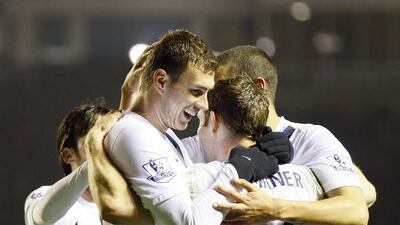Manchester City baffle me. They are brilliant at home and mediocre away in the Premier League. I cannot fully understand why a team goes from being world beaters to nervy a few days later.
If City can fix their away form, the title will be theirs.
They have so much attacking potential, enough to blow away rivals, as Arsenal found out last weekend when they were hit for six.
City have won all eight home league games, with 35 goals scored against just five conceded.
Away from home they have won two, drawn two and lost four, scoring only 12 goals and conceding 13 goals.
I’ve watched many of those games closely and think their main issue is a mental one that comes from a change in manager.
Under Manuel Pellegrini, City’s shackles are off. They attempt to play away as they do at home, with abandon. I like that.
That is a contrast to last season, where Roberto Mancini’s side would attack at home but set up far more defensively away. I could not understand why. City have so many flair players and their defensive style away did not help them. Samir Nasri did not look like the player who had impressed so much at Arsenal under Mancini, and he was substituted frequently. He has been superb under Pellegrini and combines well with City’s other brilliant attackers, yet City’s form is poor.
It should not be.
It has also long mystified me why football teams are far stronger at home than away. In the generation before mine, pitches were varied and usually favoured the home team who were used to them.
Or, in the case of Cambridge United under their manager John Beck, the grass was grown long in the corners of the pitch.
The defenders would pump long balls into the channels, and instead of going out balls would stick in the longer grass like puddings.
Strikers such as my friend Dion Dublin would run onto the balls and attack.
It did not make for attractive football, but it was hugely effective and tiny Cambridge rose up the leagues.
They had a strong advantage over visiting teams and their home form reflected that.
Plastic pitches were also introduced at six English grounds in the 1980s. The teams who used them every week were familiar with the high bounce and speed at which the ball moved. Visitors were not.
This was from two decades ago, when there were far more variables than now.
I am from the first generation of players who played on largely excellent pitches every week.
The rules encourage uniformity not just domestically, but across Europe.
I heard stories from older players about playing in eastern Europe, behind the Iron Curtain, when the pitches were completely different – covered in sand or as hard as ice.
All that has gone.
The pitches are the same, so why is away and home form so different?
There are other factors, such as the crowd, but once a game starts most players are in a zone and don’t get affected by the crowd.
I do not buy the suggestion that some players are “homers”, either, who are more comfortable playing at home.
Not at the top level, anyway.
But the reputation of teams is a factor. Rivals consider City to be one of the best teams, so they are pumped up rather than fearful when City come and visit.
They would never attack at City, but they will attack at home, and if they get the breaks, as they have been doing, that will affect City players mentally, and they need to counter that.
Winning unexpectedly, at Bayern Munich or midweek at Leicester City, will help, but if City cannot beat the mental block away then it could cost them the title.
In 2001, I went to Tottenham Hotspur with Manchester United.
We played our normal game, but they destroyed us in the first half and led 3-0 at the break. I expected a furious manager to rip into us.
Instead, Sir Alex Ferguson sat on a chair and folded his arms. Then he didn’t speak for 15 minutes. He let the players argue and debate among themselves.
The manager’s reaction spooked us a bit. When the referee blew his whistle for the teams to go out for the second half, Ferguson stood up and said: “I think you need to rectify this.”
We did, scoring five second-half goals to win 5-3 in one of the most memorable games of my career.
I still cannot explain why we were so poor in the first half and so good in the second.
That is probably why we all love football so much. Because you just cannot explain it.
Andrew Cole’s column is written with the assistance of Andy Mitten, the European football correspondent.
sports@thenational.ae
Follow us on twitter at @SprtNationalUAE

